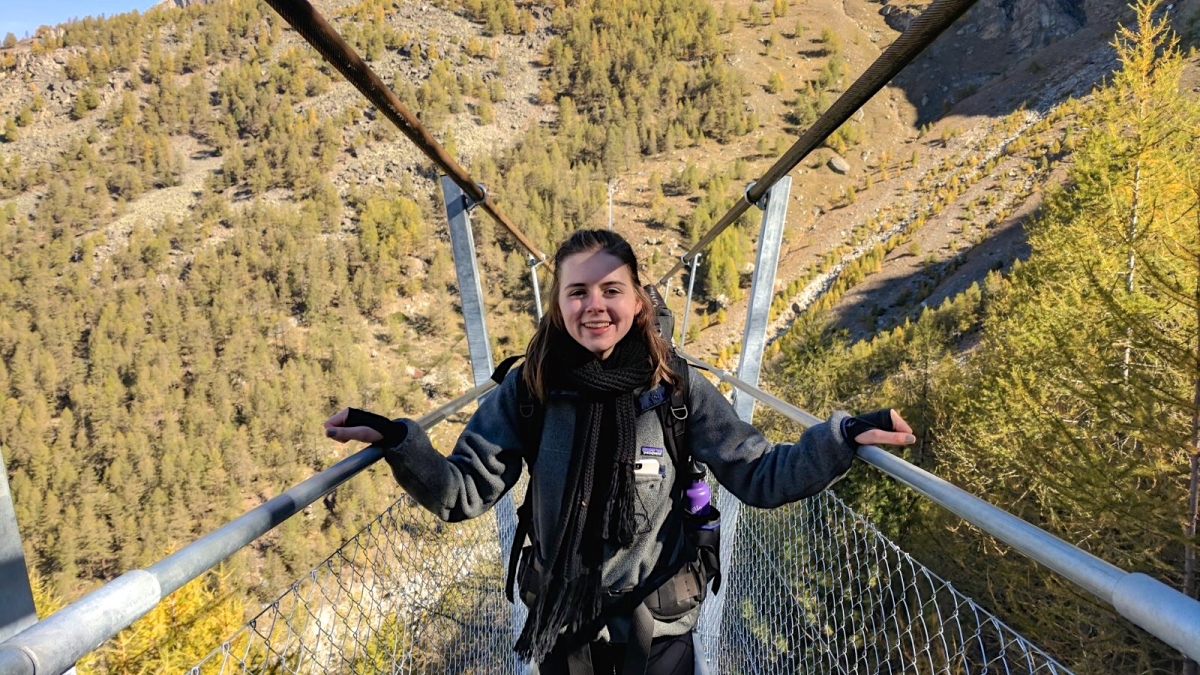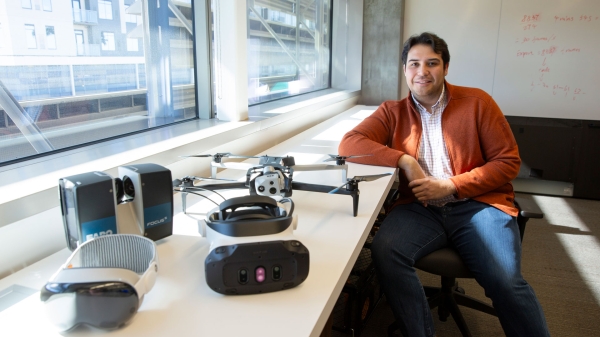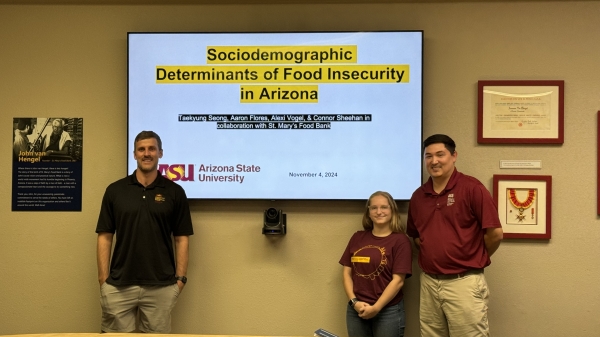ASU global health alumna works to bring attention to underfunded diseases

ASU alumna Azalea Thomson in Switzerland in 2017. Photo courtesy of Azalea Thomson
Arizona State University alumna Azalea Thomson grew up in Portland, Oregon, and started dancing at a very young age. She was considering becoming a professional ballerina, but in her junior and senior years of high school, she began thinking about college.
After touring ASU’s Tempe campus, Thomson was impressed by the opportunities Barrett, The Honors College offered and the research facilities on campus.
In her second semester of her first year at ASU, Thomson took an intro to global health course from the School of Human Evolution and Social Change. She continued with a global health policy class from Professor Monica Gaughan. It was Gaughan’s course that inspired Thomson to refocus her studies from pre-med to global health. She received her bachelor’s degree in global health in 2018.
“I just started taking some classes in the global health program and felt like it was more up my alley. It felt like a way to engage in a lot of the issues of health inequity,” Thomson said.
The ASU alumna is currently a post-bachelor fellow at the Institute for Health Metrics and Evaluation. She is part of the neonatal and child health team, where she models congenital birth defects and hemoglobinopathies.
“I work on the Global Burden of Disease project, which uses disease modeling to estimate the extent to which certain diseases and risks are causing death and loss of health,” she said. “These estimates are location-, time-, age- and sex-specific to make that information most useful for policymakers and researchers.”
Thomson uses the skills she learned in Professor Daniel Hruschka’s Laboratory of Culture Change and Behavior. While working in the lab, Thomson learned how to use the Demographic Health Survey (DHS) for research.
Thomson also participated in the School of Human Evolution and Social Change study abroad program in Switzerland. She lived with a host family for a semester, took global health courses with other university students and met people in several global health positions.
During the study abroad program, Thomson worked on a research project that became the foundation for her thesis. She also attended briefings and informational interviews in Geneva, meeting employees with the World Health Organization, Doctors Without Borders and the International Committee of the Red Cross.
Thomson said she believes the work she does is key in helping change perspectives and bringing attention to under-recognized diseases like sickle cell disease.
“Sickle cell disease is the most common inherited disease, but it receives a lot less funding than cystic fibrosis, for example,” she said. “Sickle cell disease has been historically under-recognized because of systemic racism; I think it is important to call out these issues, and it is something that my global health education really instilled in me."
When this former Sun Devil is not working on global health issues, she enjoys living in Seattle, where she bikes, hikes, makes pottery — and still enjoys going to the ballet.
More Science and technology

Teaching construction realities with virtual environments
Visiting a construction site is a valuable learning opportunity for students who want to one day work in the industry.…
ASU, Mexico partner to build next generation of chipmakers, drive semiconductor innovation
Thousands of college students in Mexico will soon have the opportunity to enroll in Arizona State University’s new, free online…

ASU, St. Mary’s Food Bank partner to tackle food insecurity in Arizona
Arizona State University and St. Mary’s Food Bank (SMFB) have joined forces to create an interactive data dashboard that tracks…